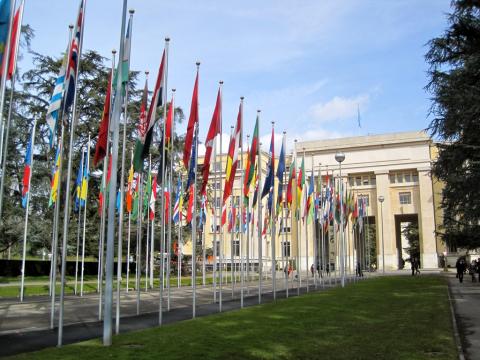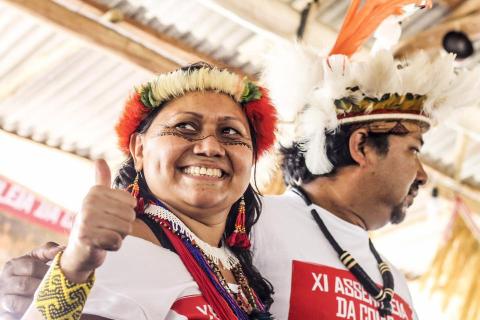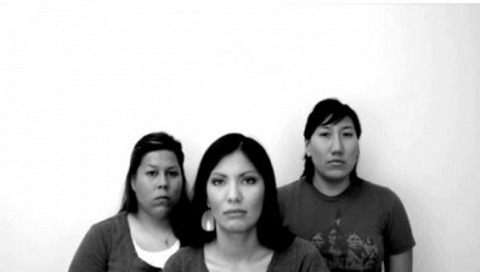How the UN Declaration on the Rights of Indigenous Peoples can be used to protect against a Trump Agenda
This month marks the anniversary of the U.S. endorsement of the UN Declaration on the Rights of Indigenous Peoples. The United Nations adopted the Declaration in September, 2007, but it took three additional years for it to gain the support of the United States, Canada, New Zealand and Australia, the only states to vote against it.
Protecting Indigenous Peoples Land Rights in Mexico and Central and South America
Center Helps Prepare Indigenous Leaders in Brazil for Future Policy Work
Highlights of Key Pending Legislation relating to violence against indigenous women
Stop the Slurs—End the Violence
The Indian Law Resource Center condemns President Trump’s continued derogatory use of the “Pocahontas” name in his political attacks. Used in this manner—to insult and to degrade for the purpose of proving superiority and trying to win political points—the Pocahontas name becomes a racist slur. It is unacceptable for this slur to be used by any person. Its use by the President of the United States during an event featuring and purportedly intended to honor Code Talkers from the Navajo Nation is particularly egregious.
In Other News:
Dear Friends,
 The Indian Law Resource Center has been on the front lines to defend and assert indigenous rights for nearly 40 years, and there’s never been a time when it hasn’t been a very difficult, demanding fight. Today, these battles are even more grueling and brutal. We’re facing some of the worst threats in 40 years, and the stakes are very high. We need your continued support.
The Indian Law Resource Center has been on the front lines to defend and assert indigenous rights for nearly 40 years, and there’s never been a time when it hasn’t been a very difficult, demanding fight. Today, these battles are even more grueling and brutal. We’re facing some of the worst threats in 40 years, and the stakes are very high. We need your continued support.
In the United States, tribes stand to lose a lot. Threats to Native rights have been tangled in the politics over the border wall, environmental regulation, energy development, and many other human rights issues. There are signals by Trump administration that the long-standing trust relationship between the federal government and tribes is directly in the political crosshairs. This would be incredibly destructive; it could bring an end to programs tribes depend on to meet the most basic needs of their citizens, including housing, education, health care and much more.
The Center is delving deep into legal research to help tribes anticipate and defend against what we believe will be a multi-faceted effort by the administration to undermine the federal trust responsibility and other fundamental elements of tribal sovereignty. During the coming year, we will help tribes develop a concerted, comprehensive strategy to respond to these attacks. Your donation will help us build a strong defense.
 With these efforts and other challenging fights on the horizon, I hope we can count on our continued support.
With these efforts and other challenging fights on the horizon, I hope we can count on our continued support.
Thank you,
Robert T. Coulter
Executive Director





